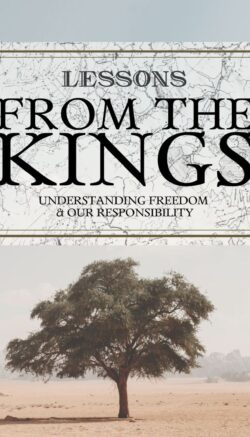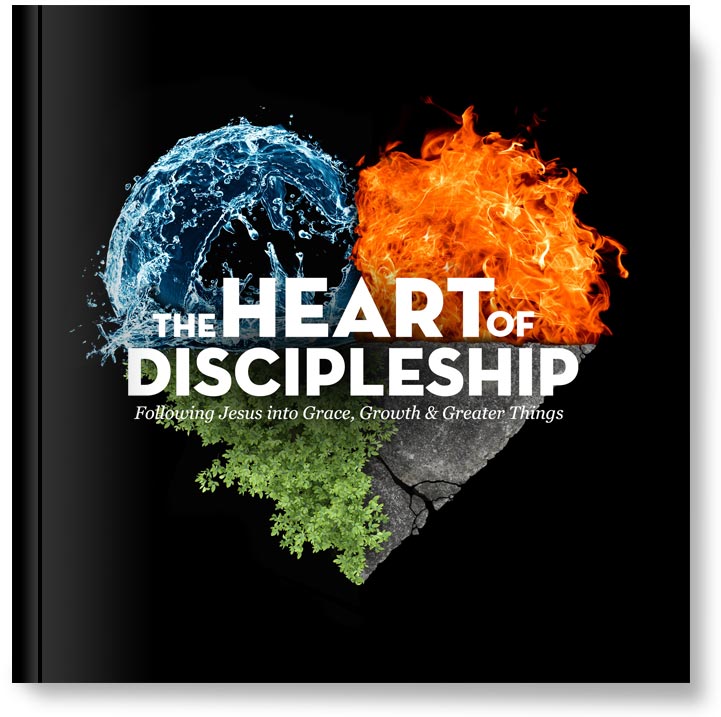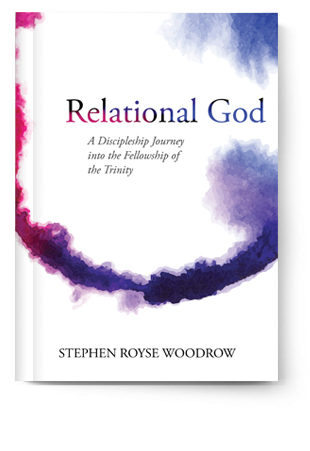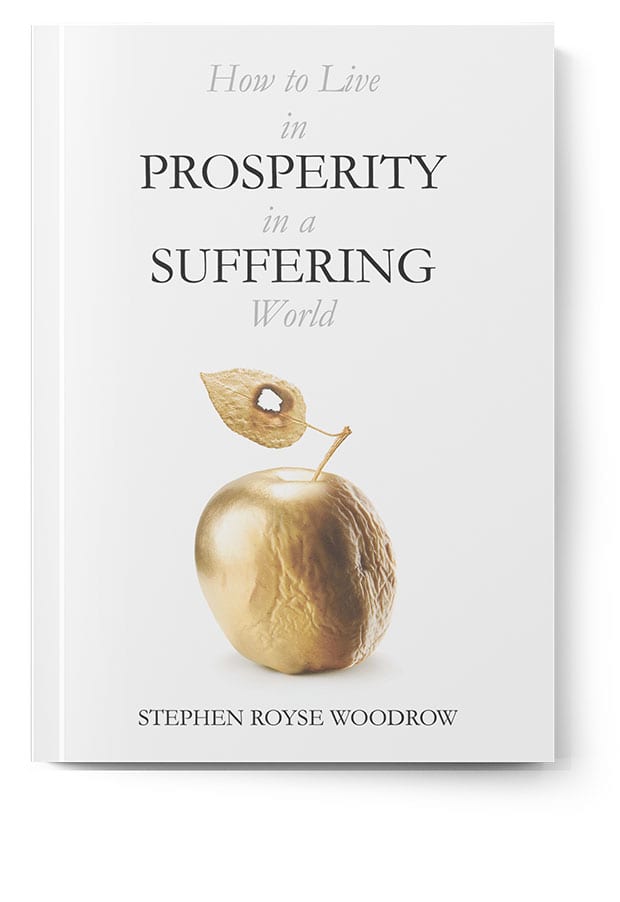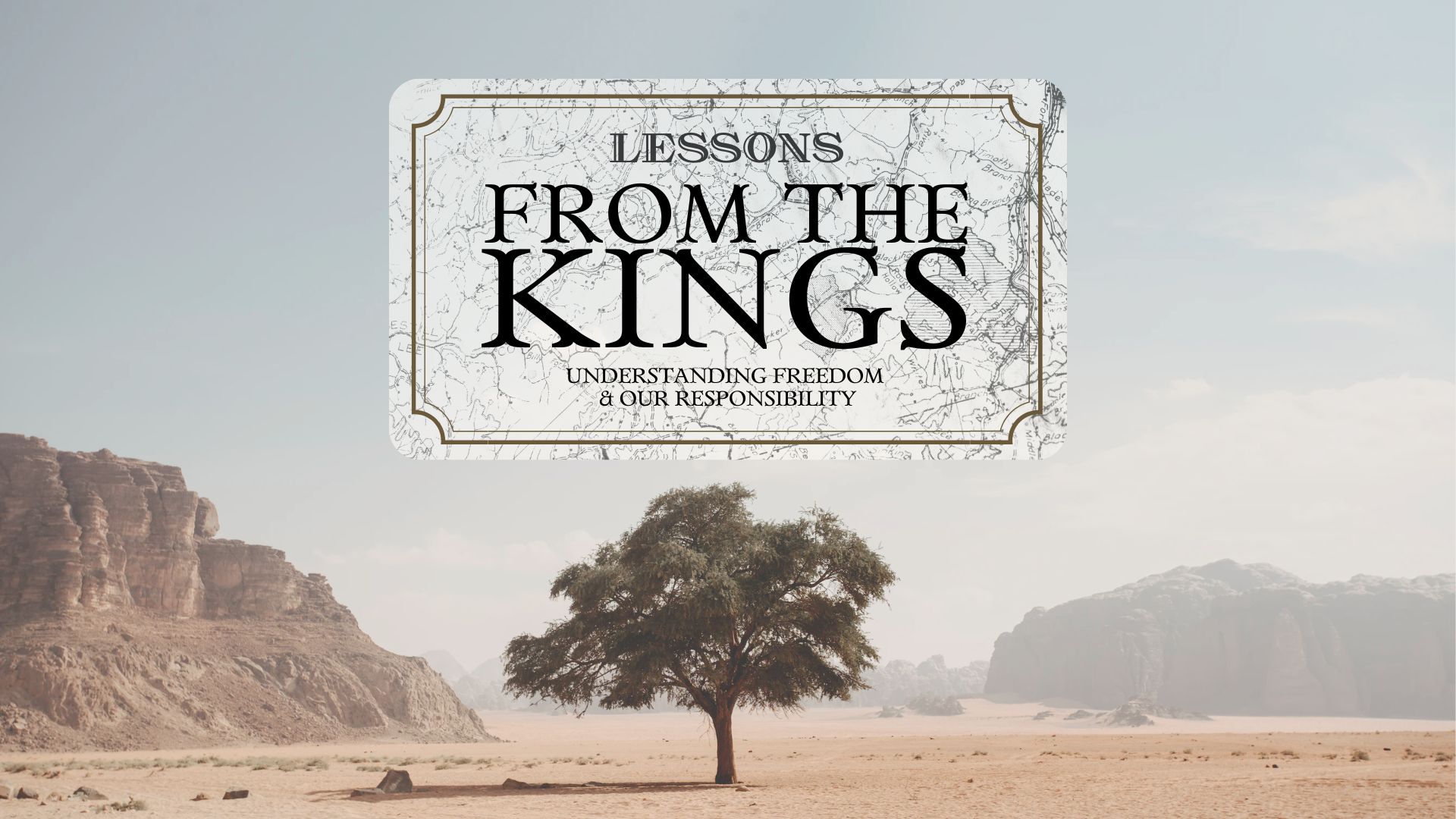 How do you make decisions? This is a really important question. One that young folks should regularly be asking older folks.
How do you make decisions? This is a really important question. One that young folks should regularly be asking older folks.
Anyone ever make a bad decision? And wished you would have processed better before making the decision?
Anyone ever make a decision that you thought was a really good decision because you processed well, but were perplexed by the outcome of that decision?
Who taught you how to make good decisions?
How are decisions made around here? This should be a question we ask of about anything we are a part of – especially marriage and church – a church should have qualified elders and people should know how they make decisions.
Anyone have a big decision coming up? Lets pray that the Holy Spirit would bring great insight to that this morning.
For most of us, the main reason for the bad circumstances in our lives is a result of our bad decisions – it is not what our culture is pushing heavily that we are the victim and it is someone else’s fault. The sooner we admit this, the sooner we are on the way to transformation by the Spirit of God. It is not the circumstances or the trauma that happens to us that is the primary issue, it is how we respond, the decisions we make in respond to what happens.
There is one decision that is more important than any other in life for it has eternal consequences. Are we going to continue to align with the reality of the world or are we going to align with Jesus and His great promises for this life and eternal life. We would love to engage with you about this after service or over coffee.
LESSON THIRTEEN
Verses: 1 Kings 12; 1 Kings 11:26-43; 2 Chronicles 10, Matthew 20:25-28;
Good decision making begins with seeking the Lord’s counsel and other wise counselors and valuing age in the midst of our youth driven culture.
Power, Money and Sex all got to Solomon, we can see in 1 Ki 12:4, “Your father put a heavy yoke on us” contrasted with 4:20, the enjoyment of peace for the nation.
2 Chron 10 – revolt against Rehobaum, vs 19, he did not listen to old men who had stood with solomon, but listened to his peers, not leveraging age and wisdom and experience
Rehoboam did not seek the Lord as his grandfather David and his dad Solomon did – he only sought the counsel of his peers
Rehoboam’s greatest fault was that he didn’t seek the Lord’s counsel and confirm it with wise godly counsel
But Rehoboam rejects the elders’ advice and consults with the counselors his own age. Like Rehoboam, they are young, ambitious, proud, and insecure. They tell him to intimidate the crowd by declaring that he is tougher than Solomon. Their theory is that servant leadership will not work. Only a bully can handle a diverse kingdom. As Nelson observes, “Rehoboam chooses slogans over wisdom, machismo over servanthood.”
House, P. R. (1995). 1, 2 Kings (Vol. 8, p. 182). Broadman & Holman Publishers.
Today, we have the tendency to value innovation over wisdom and achievements over people.
The text has already introduced what will occur. God will continue to honor the covenant with David, so Solomon’s son will have a two-tribe kingdom (1 Kgs 11:32–36). Because of Solomon’s idolatry, however, Jeroboam will rule the other ten tribes (1 Kgs 11:26–31). The Lord has sent these infallible promises through Ahijah the prophet, so the predictions must come true. What remains to be seen is how they will come to pass.
House, P. R. (1995). 1, 2 Kings (Vol. 8, p. 177). Broadman & Holman Publishers.
We can find ourselves working against God – 1 Kings 11, because of solomons lack of devotion, God raised up adversaries against him and Israel. We must remember Gd is opposed to the proud but gracious to the humble.
Four issues need special consideration. First, the division of the nation into two parts has a tremendous impact on Israel’s history. The separate entities never regain the prestige David and Solomon had established. They are also less able to repel foreign invaders. Of course, 1 Kgs 11:1–40 discusses the religious roots of the breakup. This text also notes that Jeroboam, a northerner, was already a likely candidate to take Solomon’s place. His position as supervisor over a forced labor project (11:27–28) underscores why northern Israelites were tired of Solomon’s policies. They were drafted to work in the south, their tax burden was heavier than Judah’s, and their love for the Davidic dynasty was always tenuous at best. As H. Tadmor observes, the very fact that Rehoboam felt compelled to go to Shechem to speak to the northern tribes “is evidence of deep unrest and ferment among the people.”2 Only spiritual commitments could keep the nation united, and those commitments had already been weakened by Solomon.
House, P. R. (1995). 1, 2 Kings (Vol. 8, p. 178). Broadman & Holman Publishers.
Third, Jeroboam’s new religion made covenant keeping even more difficult than it had been. Jeroboam was clever enough to realize that if his subjects traveled to Jerusalem for religious observances their loyalty might revert to the house of David (cf. 1 Kgs 12:26–27). Therefore, he set up shrines in Dan on his extreme northern border and a more significant one at Bethel on his southern boundary (cf. 2 Kgs 17:24–28; Amos 7:10–13). Jerusalem’s uniqueness in God’s sight was ignored. Jeroboam also set up golden calves to represent God’s presence in the new sanctuaries.7 These images quickly became used as idols (1 Kgs 12:28–30), thus shattering the first two of the Ten Commandments (Exod 20:3–6). New priests were appointed who were not Levites (1 Kgs 12:31), and a new festival was instituted (1 Kgs 12:33). Jeroboam’s innovations were a compromise between Canaanite idolatry and traditional Yahwism. Such syncretism led to loyalty for neither tradition. Ultimately, this religion sapped Israel’s spiritual fiber to the extent that they did not have enough character to endure as a nation.
House, P. R. (1995). 1, 2 Kings (Vol. 8, p. 179). Broadman & Holman Publishers.
It is easy to decontruct faith/church , it is much harder to build healthy faith/church.
Without hesitation the people reject Rehoboam’s authority over them. They deny any responsibility to David’s dynasty and leave Rehoboam to rule Judah. One incredibly poor decision tears down in a few days what David and Solomon labored eighty years to build. DeVries notes, “Possibly this passage’s most important lesson is how much easier it is to break up what belongs together than it is to restore what is broken.”
House, P. R. (1995). 1, 2 Kings (Vol. 8, p. 182). Broadman & Holman Publishers.
Refer to Strength to Strength for quote about leadership needing older voices to balance younger voices
How are we valuing age and wisdom in our youth driven culture?Answer this for business and more importantly Church!
“The teaching gift of crystallized intelligence was on my mind a couple of years ago when I gave a speech to the employees of a prominent Silicon Valley tech firm…I took the opportunity to ask whether anyone in his youth-dominated business ever thought about age diversity. “Do you have enough old people working here? I asked. His response was instructive: “You mean people over thirty?” Punk. The point is not to find jobs for the elderly; it is to glean the wisdom and experience from people who have seen a lot, have already made every stupid mistake in the book, and can teach the younger folks before they make avoidable errors. Over the last few years ,the youth-dominated firms in the tech sector have been battered by scandals and plummeting public admiration. Where once they were venerated as the future of capitalism, today people often see their products as harmful and their leaders as selfish and childish. Older executives in other industries just shake their heads at the seemingly obvious mistakes the young tech entrepreneurs are making…So what do the young hotshots need? Old people on product teams, old people in marketing, and old people in the C-suite. They need not just whiz-bang ideas but actual wisdom that only comes with years in the school of hard knocks.” (From Strength to Strength, Arther Brooks)
Th same can be said for all the young pastors and leadership structures that model business practices rather than elder church practices.
Matthew 20:25-28
25 But Jesus called them to him and said, “You know that the rulers of the Gentiles lord it over them, and their great ones exercise authority over them. 26 It shall not be so among you. But whoever would be great among you must be your servant, 27 and whoever would be first among you must be your slave, 28 even as the Son of Man came not to be served but to serve, and to give his life as a ransom for many.”
Rehoboam as his father Solomon were not concerned with servant leadership, a shepherds heart like David, but got caught up in building and innovation at the expense of the people.
LESSON FOURTEEN
Verses: 1 Kings 12, 2 Chronicles 10; Matthew 24:11; Acts 2:17-21; 1 Thess. 5:20-21; 1 Cor. 14:31-32; Revelation 10:7, 11:10, 11:18, 16:6, 18:20, 18:24.
The role of the prophet and the gift of prophecy in Church and society will increase toward the end times and should be embraced as a key element in guidance and revealing God’s plan.
Fourth, the prophetic movement began to have more importance in both kingdoms. Ahijah, the prophet who declared Jeroboam’s rise to power in chap. 11, returns in 1 Kgs 14:1–18 to denounce Jeroboam and predict the end of the king’s dynasty. Unnamed prophets reaffirm God’s sovereignty over kings and governments in chap. 13. Given the tension that already exists between monarchs and prophets, greater conflicts in the future appear to be inevitable.
House, P. R. (1995). 1, 2 Kings (Vol. 8, p. 179). Broadman & Holman Publishers.
1 Kings 13, the importance of obeying the voice of God even over prophetic voices, so the importance of listening and confirming when we receive a word from someone – we are not to despise prophecies 1 Thess 5:20, we are to earnestly desire spiritual gifts especially prophecy 1 Cor. 14:1, but we are to test everything 1 Thess 5:21, and be convinced it is from the Lord.
Prophecy in the end times: it will increase, Matt 24:11, “And many false prophets will arise and lead many astray. Joel 2:28-32, Acts 2:17-21, Revelation 10:7, 11:10, 11:18, 16:6, 18:20, 18:24
At different times God has sovereignly poured out His Spirit upon His people in greater measures and it will increase in the end. However, with Pentecost we are no longer to just wait for the next great outpouring but to seek and earnestly desire to prophecy
The church that does not obey the commands of God related to prophesy will be vulnerable as more false prophets and Christ’s arise in society.
Where are the prophets today? Who are the prophets today? You! Find a church that embraces a healthy pursuit of the gifts of the Spirit.
LESSON FIFTEEN
Verses: 1 Kings 12, 2 Chronicles 10, Proverbs 16:1, 9
Good decision making and processing of consequences requires holding the tension between God’s sovereignty and our responsibility.
When the three days are over, Rehoboam delivers the harsh message. The author explains why “the king did not listen to the people.” This lack of judgment and its results, this “turn of events,” “was from the Lord” so that God’s word through Ahijah could come true. Nothing occurs here because of “chance.” There is no “chance.” God is sovereign. Still, Rehoboam’s decision is his own. The text maintains the tension between God’s sovereignty and human responsibility that pervades all of Scripture.
House, P. R. (1995). 1, 2 Kings (Vol. 8, p. 182). Broadman & Holman Publishers.
At home Rehoboam gathers a massive force, intent on invading the north. At this point, however, another prophetic voice surfaces. Shemaiah, simply designated as “the man of God,” a title that takes on growing significance in the story (see below), warns the king to stay home. Why? Because God says, “This is my doing.” Rehoboam obeys God in this matter. Israel has been irreparably split into northern (ten tribes) and southern (two tribes) segments. The year is ca. 930 b.c.
House, P. R. (1995). 1, 2 Kings (Vol. 8, pp. 182–183). Broadman & Holman Publishers.
Proverbs 16:1, 9: “The plans of the heart belong to man, but the answer of the tongue is from the Lord.” “The heart of a man plans his way, but the Lord establishes his steps.”
What is God saying to you about decisions you have made, about to make, and need to make?
Apply the Gospel to this questions, and ask if they know how, we would love to walk with you through this.
1

